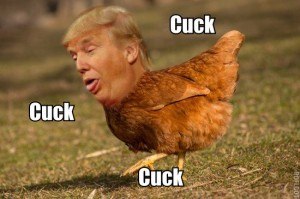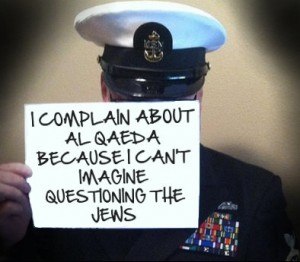
After Trump’s Syria Air Strikes, Alt-Right Is Not Alright, Eric Levitz, NYMag.com, 7 April 2017:
Donald Trump’s rebrand of American conservatism was largely aesthetic. The mogul was far from the first Republican to dress up the one percent’s agenda in populist garb; or to pin blame for the middle class’s decline on a conspiracy between rootless elites and an undeserving minority; or to shore up a fragile sense of national esteem and identity by defining it against an evil, foreign other.
Like most pop-culture phenoms, Trump added a few idiosyncratic touches to a tried-and-true formula, and, thus, generated a sound both reassuringly familiar and thrillingly new. Specifically, the candidate traded the party’s decades-old racial dog whistles for foghorns, while revitalizing the genre of right-wing demagoguery by borrowing flourishes from the domains of professional wrestling and reality television.
Still, Trump’s innovations weren’t entirely stylistic. Nor were they all merely amplifications of inherited themes. His anti-trade diatribes were genuinely new for a Republican nominee, at least for the past half-century. And, occasionally, he directed his populist fury past the bureaucrats and cultural elites whom Nixon so reviled, and up to the owners of capital (albeit, strictly the “international,” implicitly Jewish sort).
Over 18 months of campaigning, the geriatric demagogue maintained a consistent line on very few things. But the hypocritical horrors of humanitarian intervention was one of them. The Trump doctrine on the Middle East was, in many respects, evil, impractical, and illegal. But it offered coherence, and a cathartic acknowledgement of the oft-ignored trauma of Iraq: If we drop bombs over there, let’s do it to kill terrorists and their families, or to confiscate natural resources, but not to save a bunch of Muslims from a secular dictator who kills jihadists.
Of course, this posture was not Trump’s own invention. It was broadly similar to the brand of isolationism preached by Pat Buchanan and the long-marginalized, paleoconservative wing of the Republican Party. Which made Trump’s primary victory its own kind of regime change: The foreign-policy elite was the one segment of the GOP coalition to abandon its standard-bearer in large numbers and loud tones. When Trump won anyway, the neo-paleocons (a.k.a. the alt-right) collected the keys to the kingdom.
Or so they thought.
Trump loves a conspiracy theory. Now his allies in the fringe media say he’s falling for one in Syria, Adam Taylor, The Washington Post, 7 April 2017:
Before the U.S. strikes even hit, an alternative take on Tuesday’s horrific chemical attack — widely attributed to the Syrian government — had begun to spread across the Internet. It was a “false flag,” the theory went, designed to trick Trump into intervening more forcefully in the Syrian war. Those spreading the theory were often closely linked to the “alt-right,” a small, far right movement whose members are known for espousing racist, anti-Semitic and sexist points of view.
Any other president at any other time might have barely noticed the “false flag” narrative — Trump, like his predecessors, has at his disposal an entire intelligence community that can offer expertise and context. He doesn’t need to listen to obscure online voices if he doesn’t want to.
However, growing distrust of the media has allowed wild theories to enter mainstream discussion in recent years. Throughout his campaign and in the early stages of his presidency, Trump has shown himself willing to court this distrust and look to the fringes of debate.
The U.S. president loved to court the fringes. But now, after pursuing military action against the Syrian regime, the conspiracy-loving U.S. president finds himself in a new and perhaps odd position: He is viewed as a dupe, conned by a conspiracy, by many who share his worldview.
(((Yair Rosenberg))): “You’re never going to guess who many on the far-right and far-left are blaming for the Syria strike. OK, you totally will.”
(((Yair Rosenberg))): “Anti-Semites are basically the world’s worst detectives: they always know who is behind a crime but somehow never manage to prevent it”
Ironically these accounts shine more light on the critical role played by jews than the supposedly “anti-semitic” alt-jew figures they mock.




